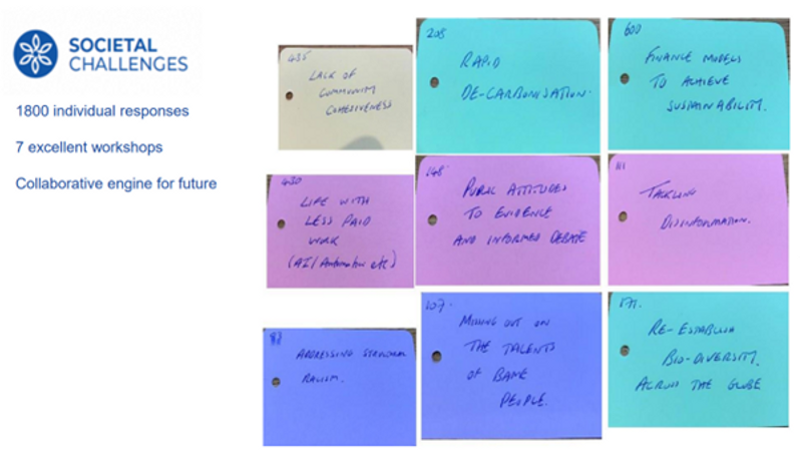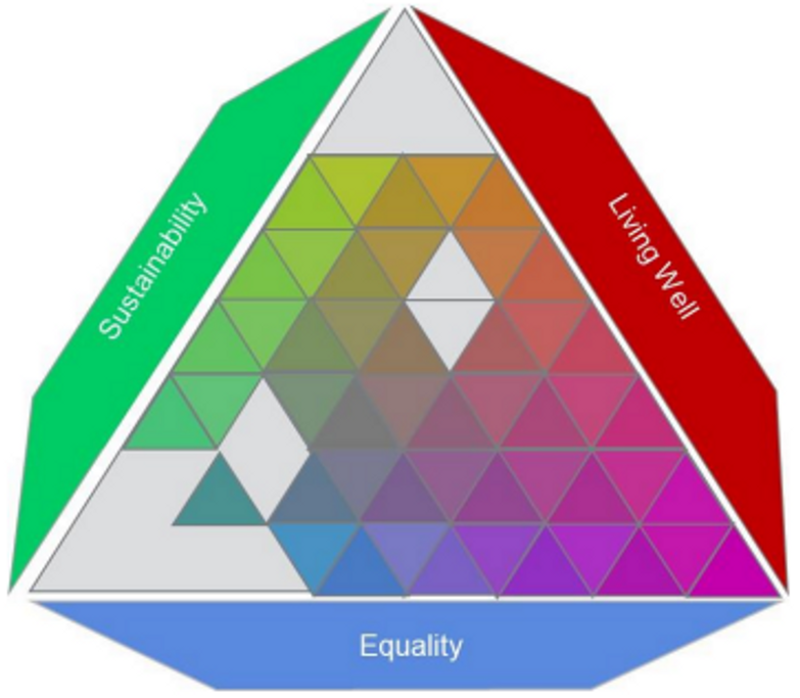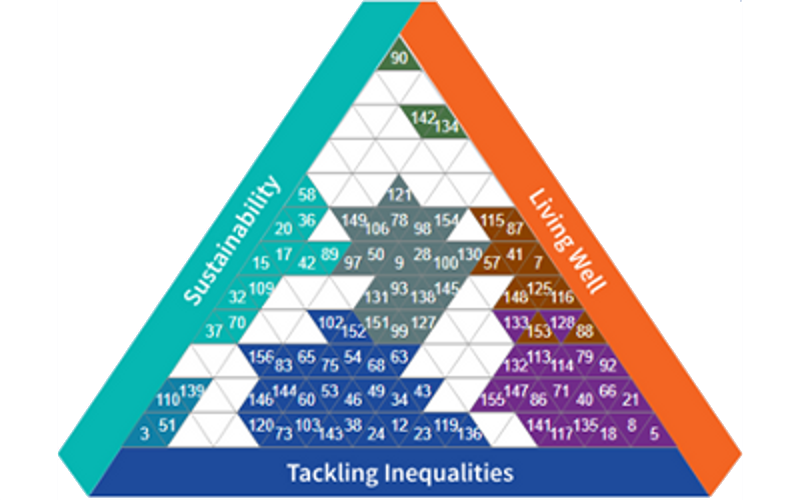You are here
- Home
- Open Societal Challenges
- Origins and development of the OU’s Open Societal Challenges 2021-2023
Origins and development of the OU’s Open Societal Challenges 2021-2023

Creating a vision
The Open University's (OU) Open Societal Challenges (OSC) is the brainchild of Professor Kevin Shakesheff, Pro-Vice-Chancellor, Research & Innovation.
Professor Shakesheff identified an opportunity for the OU to have a unique approach to research which was going to have a positive impact on society and align well with the OU’s mission to be open to people, places, methods, and ideas.
Commenting on this approach, Professor Shakesheff said:
“The background to this is that the University has a fantastic mission, and we make a huge impact on people’s lives through the education we do on opening up opportunities across society.
“We also do lots of excellent research which has an impact on the lives of people in all four nations of the UK and globally and now, as we recover from Covid, with lots of changes across the world happening very rapidly, it’s more important than ever for The Open University to make a commitment to use our research to help people.”
This new purpose formed the basis of a new research plan for the period 2022-2027, which was the result of a consultation on the Open Societal Challenges idea with staff, students, alumni and partners and listening to their response to shape a new way or organising research so that OU staff could feel more ownership of the research, be clearer about what the impacts could be and therefore be more likely to collaborate across the University and with externals.
The consultation
In summer 2021, the consultation opened for staff, students, and alumni across the OU’s four nations with a survey and an opportunity for staff to discuss the concept in workshops. Based on experience and research successes over the past 50 years, some pre-identified areas for societal challenges were identified for participants to respond to in the survey that ran through to the autumn.
Participants were asked to identify their top three societal challenges from the following:
- Sustainability and the Environment
- Health and Wellbeing Inequalities
- Globalisation and internationalisation
- Openness, Equity and Leadership in Education
- Space Exploration and Application
- The Covid Recovery Decade
Findings
In total, there were 1812 responses to the survey (including 821 partial responses). Analysis of the responses showed that:
- Staff, students and alumni think Sustainability and the Environment is the key societal challenge the OU should tackle. Specifically within this, climate change and global warming is seen as the key focus.
- Health and Wellbeing and Openness, Equity and Leadership in Education are also important.
- However it should be noted that few issues exist in isolation from others. Societal challenges (and the themes; Equality, Living Well and Sustainability) are interconnected).

Creation of the OSC Online Platform
The survey indicated that the three Challenges to be taken forward within the Research Plan up to 2027 are:
- Sustainability
- Living Well
- Tackling Inequalities

The focus of the next two years (October 2021 to October 2023) was to promote these challenges internally to encourage staff to submit challenges for funding at the same time as an OSC Online Platform was created, which by October 2023 hosted nearly 200 challenges.

Some of these Challenges were showcased at a one-year anniversary event at the OU in July 2023.
Hear what Professor Shakesheff had to say at the event in the video
I'm Kevin Shakesheff.
I'm the Pro-Vice-Chancellor for Research and Innovation at The Open University.
I think we get a huge amount from meeting up as human beings and obviously since COVID, there's been a bit less of this type of interaction.
So it's great just to have this buzz today.
Lots of people interacting and sharing ideas.
And I think, you know, for the long term, it just offers so many opportunities for people to find new ways of working together.
I'm really, really pleased with how the Open Societal Challenges has gone.
And I think that The Open University, everybody wants to work to do better for society.
So this ability to bring people together to really take a long term view and say, how if we work together for a very long period of time, can we really tackle some of society's major challenges?
But what's so nice is the diversity of the teams that have come together.
People that hadn't previously met are now working in teams and we're starting to make an impact outside of the OU and draw people into the work we're doing.
Research is great because it's such a team activity, but undoubtedly that early stage of your career when you're doing your PhD or in that early career stage, it's a difficult step.
It's a step where you need lots of people around you.
And I think also you need to learn from people that have been there and done it and that know how to get across some of the difficulties in research.
It's fine to struggle at times and I think as a community it's much easier to communicate that when we're all together.
A soft launch of the Platform took place in October 2023, along with plans to roll this out wider to externals throughout 2024.